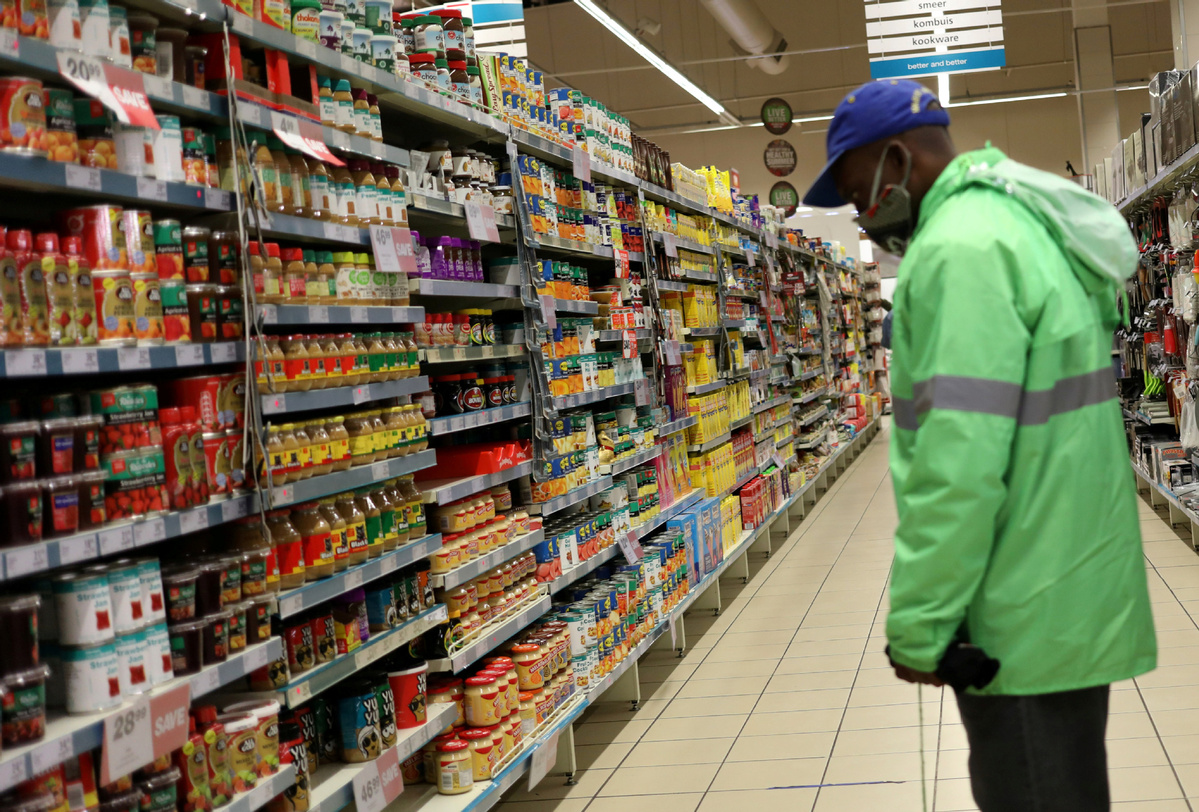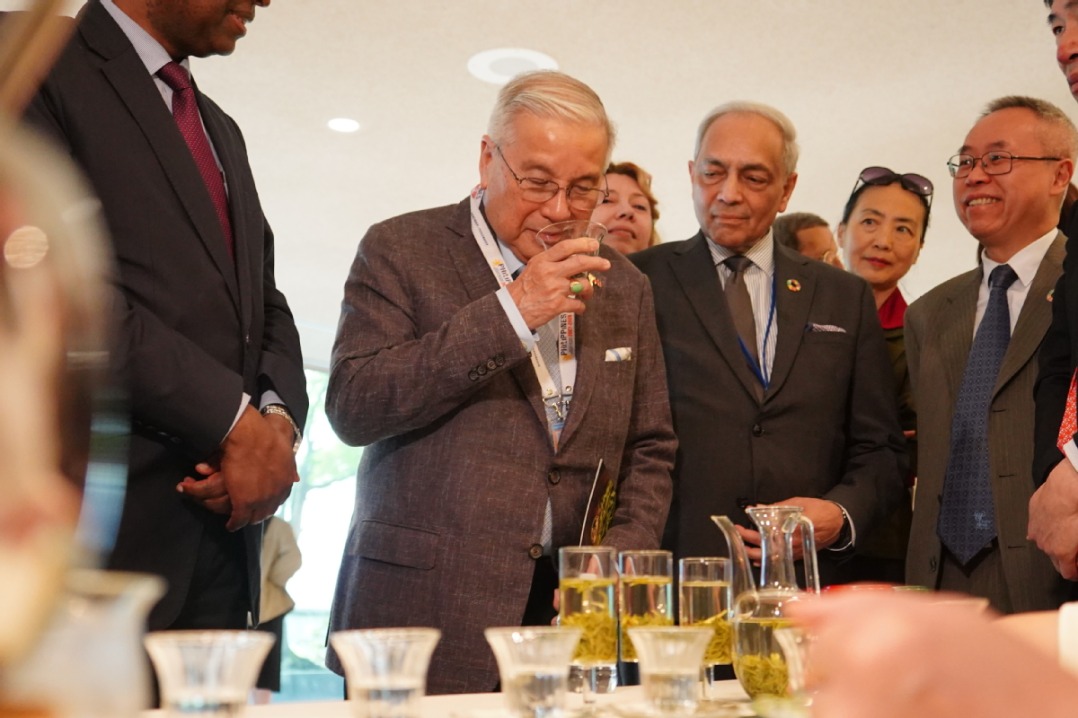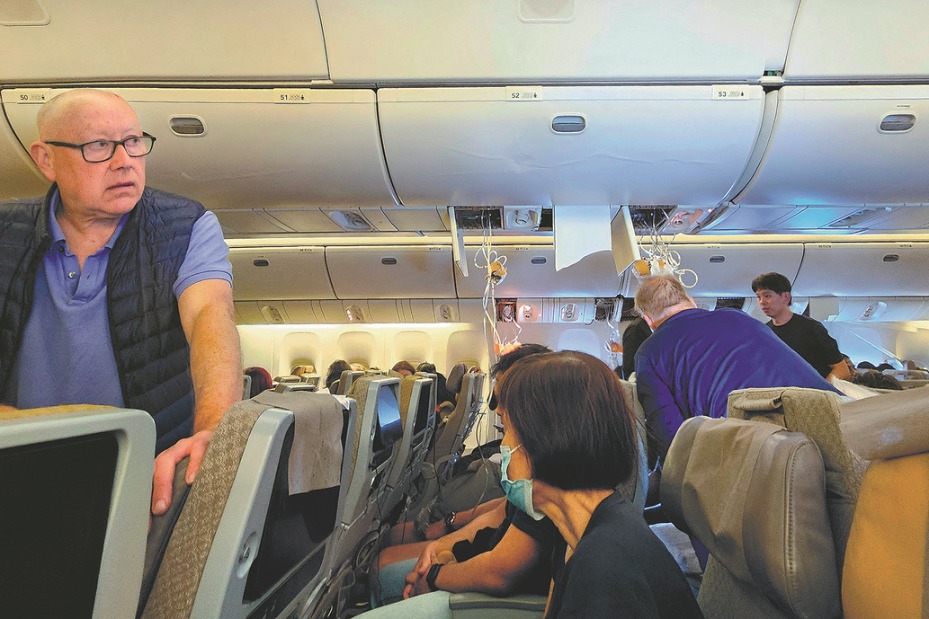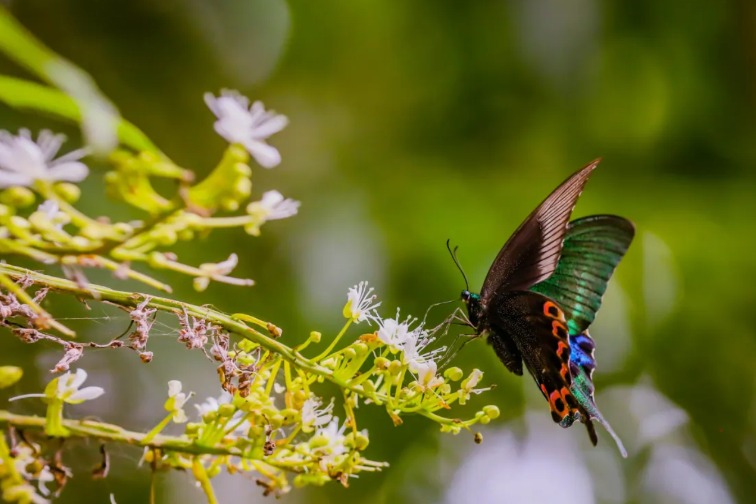Community engagement key in fighting second wave of COVID-19
By Edith Mutethya in Nairobi, Kenya | chinadaily.com.cn | Updated: 2020-12-11 16:37

With most African countries experiencing a second wave of the coronavirus pandemic, the African Centers for Disease Control and Prevention has urged governments to focus on community engagement, reinforcement and leadership to win the battle.
"In fighting the second wave of the pandemic, there will be a balancing of saving the economy and saving lives, to an extent that we have to count on the cooperation of the community as well as empower them," said Dr John Nkengasong, director of Africa CDC.
Nkengasong, who gave the remarks during his weekly virtual briefings on Thursday, urged governments across the continent to make sure there is an increase in understanding of basic concepts in the community like why people should maintain social distance and wear masks.
Additionally, governments should ensure people wear masks consistently and maintain social distance and hand-washing as they travel in rural areas for the Christmas and end of year holiday.
Nkengasong warned failure to observe health protocols will lead to steep increases in the number of new cases in January.
He confirmed the number of new cases across the continent has increased steadily and while it remains unknown how the second wave of the virus will look like, February is likely to be the peak of the pandemic.
"We should prepare for the second wave using the tools we used in the first wave, but also hoping we can get rapid access to vaccines so we can use a combination of health measures and timely massive vaccination to bring the infection curve down," he said.
Nkengasong said for the week ending Dec 6, the continent recorded 100,269 new cases and 2,181 new deaths, translating to a 7.8 percent increase in cases and a 7.8 percent increase in deaths compared to the previous week.
During the week, South Africa recorded the highest number of new cases with 26,863, followed by Morocco with 25, 854, Tunisia with 8,078, Algeria with 6,784 and Kenya with 5,064.
Over the past four weeks, Nkengasong said there has been a 3.5 percent average increase in new cases reported in Africa each week.
Central Africa recorded the highest increase at 28 percent, followed by Southern Africa with 19 percent, the west with 12 percent and east with 4 percent. The northern region recorded a 3 percent decrease in the number of new cases over the 4 weeks.
Five African countries have surpassed 100,000 coronavirus cases so far. They are South Africa with 828,598, Morocco with 388,184, Egypt with 119,702, Ethiopia with 114,834 and Tunisia with 106,856 as of Dec 10.
Ten countries have recorded more than 1,000 deaths, with the leading country being South Africa with 22,574 deaths, followed by Egypt with 6,832, Morocco with 6,427, Tunisia with 3,717 and Algeria with 2,537 deaths as of Dec 10.
Others include Ethiopia with 1,769 death cases, Kenya with 1,552, Sudan with 1,307, Libya with 1,264 and Nigeria with 1,184 as of Dec 10. Eritrea and Seychelles have not recorded any coronavirus-related deaths so far.
The World Health Organization on Thursday called on African governments to increase collaboration with communities to enhance the uptake of vaccines once they become available.
"The success of any immunization campaign hinges on community trust and acceptance. It is vital we equip them with the right information, allay any fears and address concerns," said Dr Matshidiso Moeti, the WHO regional director for Africa, at a virtual news event.
Moeti said vaccines are the best hope of ending the pandemic. "While all efforts being made for successful immunization campaigns are critical, without community support they can easily flounder," Moeti said.
Once they are available, the coronavirus vaccines will be provided first to the most vulnerable and those at highest risk. Initial groups will likely include frontline health workers, older people and adults with underlying conditions, such as heart disease or diabetes.
























